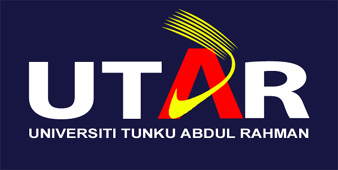
|
Centre Name: |
Centre for Environment and Green Technology |
|
Chairperson: |
Asst Prof Dr Lee Sheng Chyan |
|
Description of Centre:
|
The current environmental development and trend have clearly indicated a strong demand for research and development in environment and green technology. The Centre for Environment and Green Technology (CEGT) was established with a main objective to tap the vast opportunities in environment and green technology and to develop a strong local expertise to meet the challenges and demand in the years ahead.
The main focus of the R&D in CEGT is to spearhead multi-disciplinary
research and development in green technology involving concerted effort and
collaboration across disciplines and faculties in UTAR. |
|
Research area:
|
To facilitate research activities in CEGT, six research groups have been set
up focusing on the following areas: |
Activities in 2014
Summary
of activities
|
No. |
Date |
Event |
|
1 |
06 Nov 2013 |
Technical Talk Title: Some practical aspects of installing a split-type air-conditioning equipment. Speaker: Dr. Chin Wai Meng, OYL Research & Development Center Sdn. Bhd. |
|
2 |
19 March 2014 |
Technical Talk Title: Why does GREEN mean to the Built Environment? Speaker: Ir. Chen Thiam Leong, Primetech Engineers Sdn. Bhd. |
|
3 |
9 April 2014 |
Technical Talk Title: The Obermeyer spillway gate presentation. Speaker: Dr. Samuel SM Choy, Sam McCoy Manufacturing Sdn. Bhd. |
|
4 |
9 July 2014 |
Technical Talk Title: BIPV and Feed-in Tariff in Malaysia. Speaker: Dr. Chen Wei-nee, Chief Corporate Officer in SEDA Malaysia. |
|
5 |
8 August 2014 |
Technical Talk Title: The potential of Wind Energy Development in Malaysia. Speaker: Dr. Mohd Zamri bin Ibrahim, Director of Central Laboratory, UMT |
|
6 |
30 September 3 October 2014 |
International Symposium on Green and Sustainable Technology. The four-day symposium featured keynote lectures and presentations on five research areas, namely, Carbon, Energy, Transport, Buildings, Waste Management and Nanotechnology. |
Highlights of activities
International Symposium on Green and Sustainable Technology
The Centre for Environment and Green Technology (CEGT) under the Faculty of Engineering and Green Technology (FEGT) organized the International Symposium on Green and Sustainable Technology (ISGST) at Perak Campus from 30 September until 3 October 2014.
The symposium was attended by UTAR President Ir Prof Academician Dato Dr Chuah Hean Teik, Faculty of Engineering and Green Technology Dean Dr Yap Vooi Voon, Centre for Environment and Green Technology (CEGT) Chairperson Engr Dr Lee Seng
Chyan, chairperson of organising committee Prof Ir Dr Ong Kok Seng, UTAR staff, students, members from the academia and industry.
In his opening remarks, Prof Chuah thanked the organising committee, sponsors and participants for making the event a success. He also accorded his appreciation to Prof Dr Georg Scharfenberg, who came all the way from Regensburg University of Applied Sciences, Germany, to attend the symposium.
"It is heartening to see that our students practice green living by cycling to the campus. Together we can put our act in a simple solution that conserves Mother Nature. I hope that this conference will nurture new ideas, collaborations and innovations to better advance green causes," ended Prof Chuah to thenified applause from the audience.

Prof Chuah expressing hope that the symposium will yield results that are beneficial to the environment
The four-day symposium featured keynote lectures and presentations on five research areas, namely, Carbon, Energy, Transport, Buildings, Waste Management and Nanotechnology.
Prof Scharfenberg delivered a lecture titled "Pillars of energy transition . Barriers to overcome." He said, "There is a need for energy transition as fossil fuel is non-equilibrium and totally disrupts the carbon cycle. The emission of greenhouse gases has catastrophic consequences on lives and the environment caused by rising sea levels and temperature, growing deserts and increasing number of floods, storms and wildfires."
Among the challenges to using renewable energies are high investment, technology and knowledge transfer and transformation of energy structures to fit renewables. "A full energy supply with renewables is technically, ecologically and economically feasible as we have sufficient supply and storage of wind and solar energy. It requires political will, evolution of awareness, firm regulatory policies and free research," added Prof Scharfenberg.

Prof Scharfenberg emphasising that renewable energies are a sustainable replacement for fossil fuel
Dr Ir K.S Kannan delivered a lecture titled "United Nations Industrial Development Organisation (UNIDO) Industrial Energy Efficiency Project . A low carbon path to enhance industrial competitiveness." The project aims to promote energy efficiency improvements in the Malaysian manufacturing sector through the implementation of National Energy Management Standard and application of System Optimisation.
"The Energy Management Standard is a public structure or framework which organisations may use to develop their energy management systems (EnMS). The EnMS provide a framework for understanding significant energy use, action plans to continually improve energy performance and documentation to sustain energy performance improvements," said Dr Kannan, who is UNIDO project national manager and professor at Universiti Teknologi Malaysia.
He added, "System optimisation is a methodical approach to engineering review of energy using systems to optimise its energy use. System optimisation provides a method of assessing energy systems to identify performance improvement opportunities, actions that can provide significant energy savings with limited capital investments and more reliable operations. A good combination of EnMs and system optimisation will increase energy efficiency, reduce costs and improve environmental performance".

Dr Kannan (front) explaining how the UNIDO project helps to enhance industry, energy and environmental performance
Organised by CEGT, the symposium provided a platform for researchers, engineers and practitioners from Malaysia and abroad to present their latest research findings, ideas, developments and applications of green and sustainable technology.
Programme:

